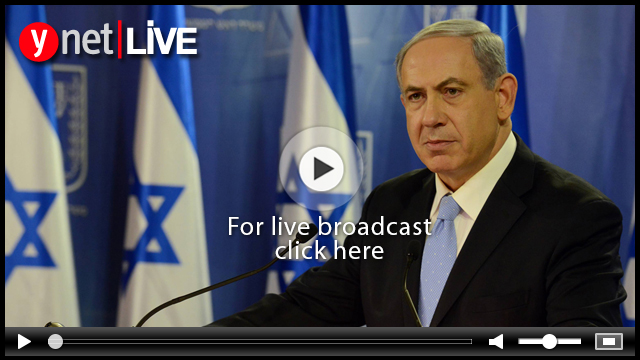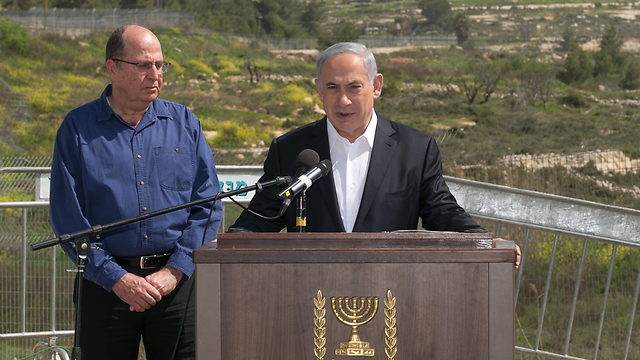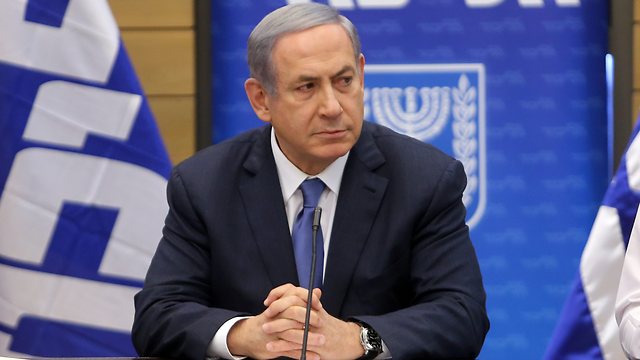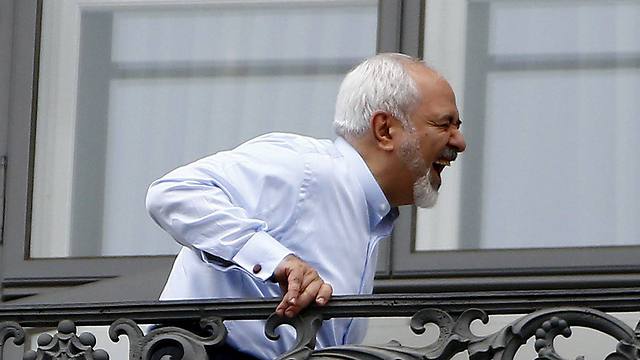Iran deal could lead to improved covert Arab-Israel cooperation
ARIEL BEN SOLOMON/J.Post//07/13/2015
If a nuclear deal is reached between world powers and Shi’ite Iran, it could stimulate covert cooperation between Israel and Sunni Arab states. However, such improved coordination would not come as a result of any real inherent change in relations between Israel and Arab countries, but because of realpolitik. Moreover, any concrete coordination would be discreet so as not to create a backlash against cooperative Arab governments. Mordechai Zaken, an Israeli expert of minorities in the Middle East and a former Arab affairs adviser to the Prime Minister’s Office, told The Jerusalem Post on Monday that when it comes to the Arab world and Israel, there is “no love, only interests.” Even if a deal is reached, he said, the Arabs are not going to attack Iran, but would be happy if Israel does.
“At the end of the day, most of these Arab countries would not have been happy to declare and expose their relations or cooperation with Israel,” continued Zaken, adding that “in the Middle East, it is not something to brag about.”In recent years, Israeli officials have met counterparts from Egypt, Jordan, Saudi Arabia and the Gulf at nuclear non-proliferation talks in Switzerland, gatherings the Israelis say have helped melt a certain amount of ice. There have also been meetings between recently appointed director-general of Israel’s foreign ministry Dore Gold, a senior adviser to Prime Minister Benjamin Netanyahu, and retired Saudi general Anwar Eshki, an informal effort to see where the two countries’ interests coincide, especially on Iran.
They appeared together at a Washington conference last month, but took no questions. Referring to this public event, David Andrew Weinberg, a specialist on Gulf affairs and a senior fellow at the Foundation for Defense of Democracies, told the Post on Monday that his understanding from news reports is that it was totally unofficial. “It was woefully underreported in Saudi Arabia compared to the coverage in Israel and the US and appears to have had no measurable impact upon policy,” said Weinberg.
“Saudi Arabia’s state news wire still calls Israel an ‘enemy’ and hardline religious preachers embraced at the highest levels in places like Saudi Arabia and Qatar continue to preach absolutely vile hatred toward Jews and toward Israel and yet receive state perks,” he noted.“Even Israel’s public interest sections in the Gulf are today a thing of the past. So in that regard, the relationship has taken a step backwards in the last two decades, not a step forwards.”
“Sure, there is security coordination and intel sharing behind the scenes, specifically on the issue of Iran and its regional proxies, but that’s been going on for at least a decade,” he continued. “And who knows, maybe the Saudis would let Israel use its airspace for strikes on Iran’s nuclear sites if it ever came to that, but there’s no secret broader alliance at play here,” said Weinberg. The Gulf states simply aren’t ready to publicly normalize with Israel barring a peace deal with the Palestinians, he argued, and possibly not even then. And within the context of the greater Sunni-Shi’ite regional power struggle, an Iranian rapprochement with the West would tip the balance of power in Iran’s favor as it gains an economic windfall from the loosening of sanctions and increased trade.
The new legitimacy that a deal would provide Iran would allow it to expand its influence in the region beyond the four Arab capitals that it already has decisive control: Damascus, Beirut, Saana, and Baghdad.Therefore, any deal is likely to lead to an escalation of the regional sectarian wars. Reflecting the increasing Arab anxiety over the Iran deal, an article by Sharif Nashashibi published on Al-Arabiya’s website on Monday titled “Preparing for the fallout from Iran’s nuclear deal,” argued that the outcome of the deal would affect Saudi Arabia even more than Israel. Nashashibi says that “the biggest regional fallout will be felt with regard to relations between Tehran and Riyadh, which are currently facing off in proxy wars to a greater extent and on more fronts than is the case with the Israeli-Iranian rivalry.”The “escalation and widening of Saudi-Iranian rivalry in recent years may pale in comparison with what will follow a nuclear deal and Tehran’s subsequent rehabilitation,” he added.
**Reuters contributed to this report.
Negotiators reach historic Iran deal amid anger in Israel
Moran Azulay, News Agencies
Israeli politicians compare deal to appeasement of Hitler; PM: Mistake of historic proportions; Obama: Deal prevents nuclear proliferation in the Middle East.Moran Azulay, News Agencies
|
Negotiators officially announced a historical agreement over Iran’s nuclear program on Tuesday afternoon, sparking reactions of confidence from US President Barack Obama and dire warnings from Israeli officials.
Obama addressed the nation just over an hour after the official announcement saying that he would veto any legislation aimed at blocking the deal in Congress, and continued to say that a nuclear armed Iran was far more destabilizing than a non-nuclear Iran.
 Prime Minister Benjamin Netanyahu
Prime Minister Benjamin Netanyahu
Obama also stated that the deal prevented the spread of nuclear weapons in the most volatile region in the world, the Middle East.
Meanwhile, Israeli officials reacted negatively with Prime Minister Benjamin Netanyahu leading the pack. “Iran is going to receive a sure path to nuclear weapons,” said Netanyahu. “Many of the restrictions that were supposed to prevent it from getting there will be lifted. “Iran will get a jackpot, a cash bonanza of hundreds of billions of dollars, which will enable it to continue to pursue its aggression and terror in the region and in the world. This is a bad mistake of historic proportions.”
Netanyahu, not happy with the Iran deal. (Photo: Alex Kolomisky)
Yisrael Beytenu Chairman and former foreign minister Avigdor Lieberman also reacted to the confirmation of a deal, calling it a danger for the future. “History will remember the Iran dael just like the Munich Agreement (with Nazi Germany) and the agreement with North Korea,” said Lieberman.
In a speech to the citizens of Iran President Hassan Rouhani said, “We didn’t ask for charity. We asked for fair, just, and win-win negotiations.”
Rouhani then added that the powers’ sanctions regime never worked on Iran. The Iranian president also had a dig at Israel, saying: “Today the people of Gaza, Lebanon, Qods (Jerusalem) and West Bank are also happy because the endeavors of the Zionist regime were defeated.””Neighboring countries! Do not be deceived by the Zionist regime,” he went on. The Iranian state news agency reported that under the current deal, all Iranian nuclear facilities will remain up and running and research on key centrifuges will continue. The news agency also said that bans on Iran purchasing certain dual-use machinery and technology will also end. EU and US economic sanctions are also set to be lifted with the implementation of the agreement according to report.
According to diplomatic sources, the deal includes a compromise between Washington and Tehran that would allow UN inspectors to press for visits to Iranian military sites as part of their monitoring duties. But access at will to any site would not necessarily be granted and even if so, could be delayed, a condition that critics of the deal are sure to seize on as possibly giving Tehran time to cover any sign of non-compliance with its commitments. Under the deal, the source said Tehran would have the right to challenge the UN request and an arbitration board composed of Iran and the six world powers that negotiated with it would have to decide on the issue.
Iranian Foreign Minister Zarif on his balcony in Vienna. (Photo: Reuters)
Still, such an arrangement is a notable departure from assertions by top Iranian officials that their country would never allow the UN’s International Atomic Energy Agency into such sites. Iran has argued that such visits by the IAEA would be a cover for spying on its military secrets. Iranian opposition to the arms embargo also eased during negotiations and the embargo is set to continue for five years. The deal also stipulates that sanctions would be reimposed on Iran within 65 days in case it broke the deal. In addition to the five-year UN weapons embargo, missile sanctions will stay in place for eight years. As a midnight Monday target for a deal approached in Vienna, diplomats said the nuts and bolts of the written nuclear accord had been settled days ago.
First Published: |
07.14.15, 08:49 |























